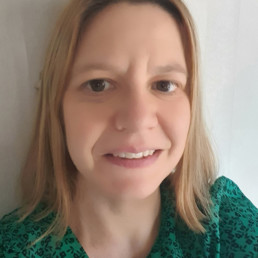
Written by Sara Porter
Biology tutor and an associate assessor for the T level in Lab Science
I am currently researching 18th century women and their role in society. In the 1700s a woman was seen as an inferior being to men. She was not seen as capable of rational thought, however, if she was brought up in a forward-thinking radical household with access to learning, she could carve out a role as a female author. Ironically, this situation was faced by people with learning difficulties in the 1960s. Until 1971 people with learning disabilities were labelled as unteachable and very often institutionalised in specialist asylums. They were not seen as people with any right to education and some of historical medical terminology makes for unpleasant reading. For me this is personal, as my daughter has Down syndrome. Kara’s certainly intelligent and at 7 her reading ability on sight words is that of her peer group. There are differences for example her numeracy is probably like that of a four year old and her speech is not fluent but we certainly have no difficulty getting her message. Maslow’s hierarchy of needs is certainly met.
(http://www.open.ac.uk/health-and-social-care/research/shld/timeline-learning-disability-history).
Inclusion is a strange word in some respects as it has many different spheres. A child with a disability in a classroom could be included but if the child is not learning and not participating then is its tokenism. When my daughter was two, we attended a farm party. My daughter could walk but could not yet talk. She saw her friends feeding the animals but because she could not communicate her needs, she was excluded. At the hospital the same week, we went for her annual eye check using animal pictures. Since her birth she had used Makaton, so she could sign the different signs for what she could see. There were no additional resources but there was specialist knowledge.
Within nursery and primary education I’ve been very determined to push the barriers back as far as I can. It has helped that my background is education and I quickly learnt the names and emails of the specialist experts in this field. The best advice someone gave me was to make sure you get to know your child’s key worker, keep an open dialogue and volunteer at the school. The school learns your name and you get a deeper understanding of the workings of the building. The staff within all my daughter’s education settings have excelled at meeting her needs. I researched as thoroughly as I could to find the places which had an open mind and would acknowledge her value.
As a parent of a child with additional needs, you have to fight for help and the fight has not been helped by austerity. The resources have reduced, and you have to research carefully in order to navigate the funding system. Mainstream education is available to children with additional needs but it;s vital you have a document called the EHCP – which guarantees funding till the child is at least 18. I;ve carved out a few articles in the Times educational supplement with this battle and still have my solicitor on speed dial. It’s not for the faint hearted as LEA are under horrendous pressure to meet demand on very limited budgets. Families form tight knit groups to help each other out and I have seen the struggle from all sides. It’s very similar to the battles faced by women in the 1700s and it is your support structure which can help you overcome these barriers. Lockdown has only made this situation more extreme and there is a feeling that much of the educational ground won through years of legislation has been lost.
On a positive note the role models and expectation for my daughter have never been higher. Technology and research is bringing in wonderful opportunities and choices. Her class adores her and she is accepted as Kara. We have just been playing with her friends on the playground and she’s going to inflict more biff and chip books on me tonight. When inclusion is done properly just like 18th century women it can open doors and allow people to blossom. It just needs funding and support.

